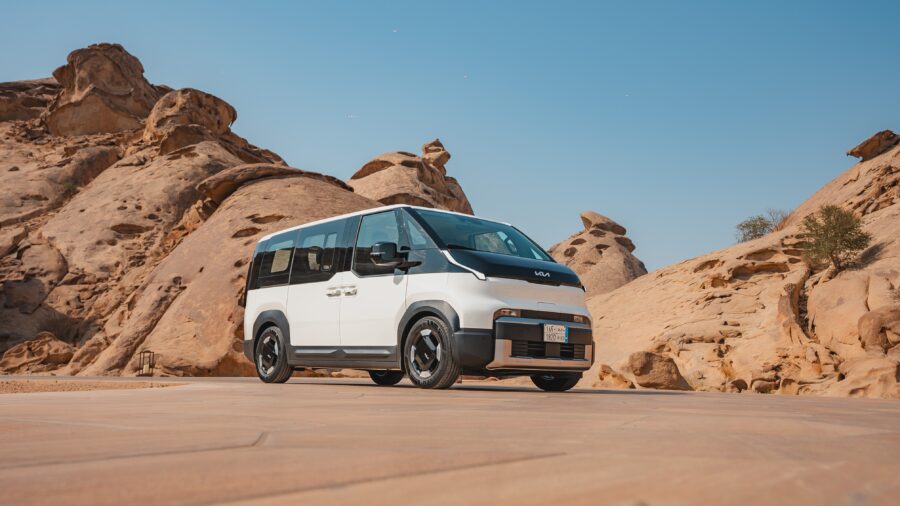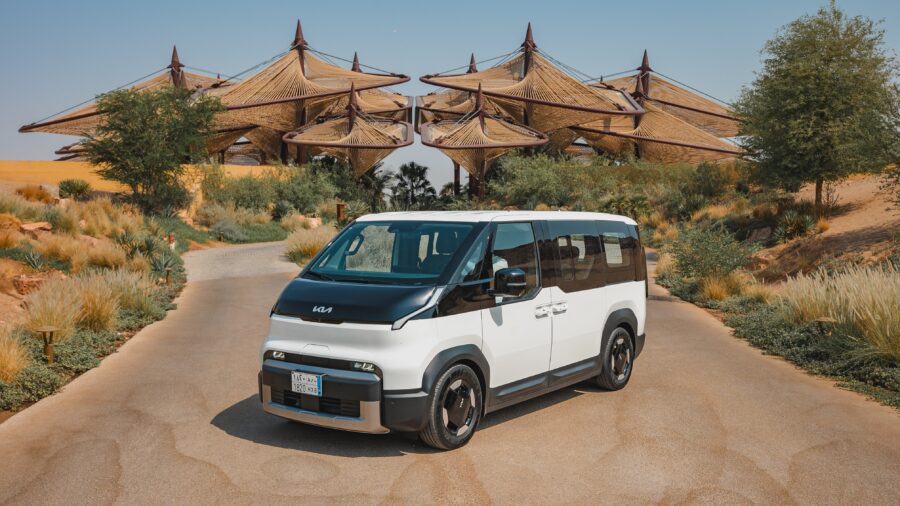Introduction
Kia Corporation has officially begun a pilot partnership with Red Sea Global (RSG) to explore the future of sustainable mobility in Saudi Arabia’s luxury destinations. The collaboration, signed earlier in 2025, marks the regional debut of Kia’s Platform Beyond Vehicle (PBV) strategy, starting with the deployment of the PV5 Passenger model. Together, Kia and RSG are reimagining how clean, connected, and flexible electric vehicles can enhance both tourism and long-term smart city development.

Pilot in Action
The program begins with the PV5 Passenger undergoing real-world testing across RSG’s flagship projects — The Red Sea and AMAALA. These vehicles are being used for:
- Airport-to-Resort Transfers – Ensuring seamless luxury guest arrivals.
- Inter-Resort Travel – Providing efficient and eco-friendly shuttle operations.
- Fleet Management – Supporting resort logistics with reliable EV integration.
- Staff Training & Support – Kia has conducted on-site inspections, product training, and hands-on guidance with distributor expertise.
This first phase is designed to measure performance in live scenarios while laying the groundwork for future scalability.
Why PBVs Fit RSG’s Vision
Kia’s PBVs are purpose-built for adaptability and sustainability, making them well-suited for regenerative tourism.
- Configurable Interiors allow passenger, cargo, or customized luxury layouts.
- Eco-Friendly Operation ensures 100% electric mobility in sync with RSG’s solar-powered fleet.
- Connected Ecosystem uses advanced software for smart fleet management and enhanced guest convenience.
These strengths reflect RSG’s mission of combining sustainability with world-class hospitality.
Leadership Insights
The initiative has drawn strong endorsements from both partners:
- Hokeun Chung, EVP, Hyundai Motor Group, emphasized Saudi Arabia’s role as a key market and highlighted future cooperation in smart city and robotics solutions.
- Hans Aksel Pedersen, Group Head of Operations at RSG, stressed that the program strengthens RSG’s pledge to sustainable operations, with its land fleet already powered entirely by solar energy.
- Ahmed Soudodi, VP of Product Marketing, Kia Middle East & Africa, framed the collaboration as a blueprint for connected, sustainable travel across the region.
Looking Ahead
The partnership is not limited to one vehicle model. Future plans include:
- Expanding to PV5 Cargo variants for resort logistics.
- Developing a special PV5 version tailored to luxury hospitality.
- Evaluating the upcoming PV7 (2027 launch) for larger-scale operations.
- Progressing toward Kia’s PV9 rollout in 2029, with a global goal of producing 250,000 PBVs by 2030.
This strategy ties into Hyundai Motor Group’s Smart City Innovation Group, which is working on Saudi smart city initiatives.
Conclusion
The Kia–Red Sea Global partnership is more than a pilot project — it’s a step toward redefining sustainable travel. By combining Kia’s PBV innovation with RSG’s regenerative tourism vision, the collaboration shows how clean mobility and hospitality can evolve together. With the PV5 already in use and larger models on the way, the journey toward smarter, greener travel has only just begun.

